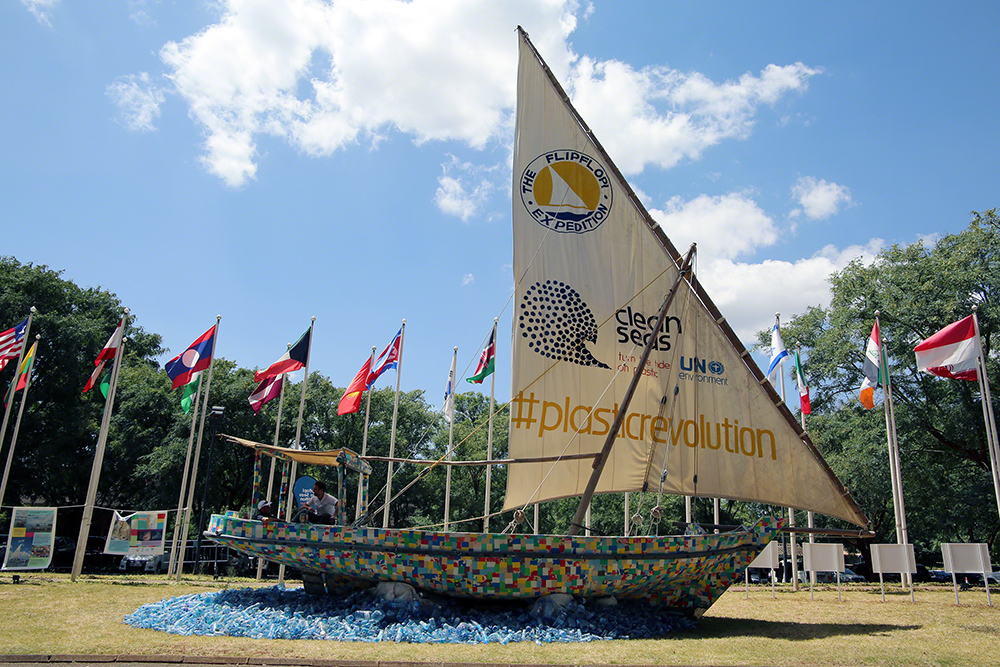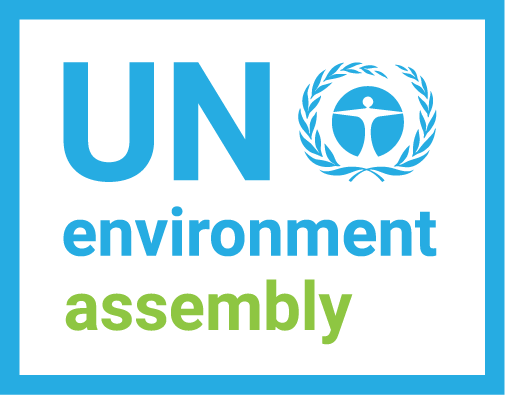4th Meeting of the Ad-hoc Open-ended Expert Group on Marine Litter and Microplastics (AHEG-4)
9-13 November 2020 | Online

 Marine litter and microplastics pose an increasing challenge to biodiversity that depend on the ocean, including sea creatures and sea birds, as well as to the overall health of the ocean. It is also an increasing threat to human health, with reports suggesting that humans ingest a worrying amount of plastic embedded in the food chain.
Marine litter and microplastics pose an increasing challenge to biodiversity that depend on the ocean, including sea creatures and sea birds, as well as to the overall health of the ocean. It is also an increasing threat to human health, with reports suggesting that humans ingest a worrying amount of plastic embedded in the food chain.
In 2017, the United Nations Environment Programme (UNEP) established an expert group to examine the problem of marine litter and microplastics address this problem and the group has met three times, in Nairobi in May 2018, meeting in Geneva, Switzerland in December 2018, and Bangkok, Thailand in November 2019.
Due to the COVID-19 pandemic, the fourth meeting of the expert group on marine litter and microplastics will convene online. Plenary sessions will take place online each day from 9 to 13 November 2020, from 1:30- 5:30 pm EAT (UTC+3).
The expert group will prepare a short summary to be presented to the fifth meeting of the United Nations Environment Assembly (UNEA-5), scheduled for February 2021. The summary will contain two broad parts: a review of the current situation and the potential response options available to tackle marine plastic pollution and microplastics. These parts are based on the legal mandates set out in UNEA resolutions 3/7 (on marine litter and microplastics), and 4/6 (on marine plastic litter and microplastics).
Under the review of the current situation, the summary is expected to include a review of the barriers to combating marine litter and microplastics, including resource challenges in developing countries. It will also take stock of existing actions to reduce marine plastic litter and microplastics by governments, regional and global instruments, international organizations, the private sector, non-governmental organizations, and other relevant contributors towards the long-term elimination of discharge into the oceans. The summary will further identify technical and financial resources or mechanisms for supporting countries to address the issue.
Under the potential response options, the expert group will present a range of national, regional and international responses, innovative approaches, and voluntary and legally binding governance strategies and approaches. This will also include a discussion on the 2019 adoption of an amendment to include plastic waste under the Basel Convention on the Control of Transboundary Movements of Hazardous Wastes and Their Disposal. The summary will also address the environmental, social, and economic costs and benefits of different response options, as well as their feasibility and efficacy. The section is expected to analyze the effectiveness of existing and potential responses and determine their contribution to solving the global marine litter and microplastics challenge. Finally, the summary will present potential options for continued work to UNEA, including through partnerships. These partnerships could focus on the development of source inventories, the improvement of waste management, awareness-raising and the promotion of innovation in relation to the prevention of marine litter, including plastic litter and microplastics.
IISD, through its Earth Negotiations Bulletin (ENB) Meeting Coverage, will provide daily web coverage and a summary and analysis report from AHEG-4. Kindly return to this site on Monday, 9 November 2020, for more information.
AHEG-4 Resources
- AHEG-4 Website
- AHEG-4 Working Documents
- Stocktake of Existing Activities and Actions
- Analysis of the Effectiveness of Existing and Potential Response Options
- Potential Options for Continued Work
- AHEG-3 Outcome Document
- AHEG-2 Report
- AHEG-1 Report
IISD/ENB Meeting Coverage
- 12th Meeting of the Open-ended Working Group of the Basel Convention on the Control of Transboundary Movements of Hazardous Wastes and Their Disposal (OEWG12), 1 and 3 September 2020, and March 2021
- 2019 Meetings of the Conferences of the Parties to the Basel, Rotterdam and Stockholm Conventions, 29 April - 10 May 2019, Geneva, Switzerland
- 4th Meeting of the Open-Ended Committee of Permanent Representatives to UN Environment Programme (UNEP) and 4th Session of the UN Environment Assembly, 4-8 March and 11-15 March 2019, Nairobi, Kenya
- AHEG-1, 29-31 May 2018, Nairobi, Kenya
IISD Resources
- Subscription Page for ENB Update, SDG Update, and Peer-to-Peer Community Mailing Lists (including Ocean News, SDG News, Climate News, Biodiversity News, Ocean News, Trade and Sustainable Development News, and Regional Updates)
- SDG Update Newsletter - A compilation of news, commentary and upcoming events published on the SDG Knowledge Hub
- SDG Knowledge Hub - An Online Resource Center for News and Commentary Regarding the Implementation of the United Nations’ 2030 Agenda for Sustainable Development, including all 17 Sustainable Development Goals (SDGs)
